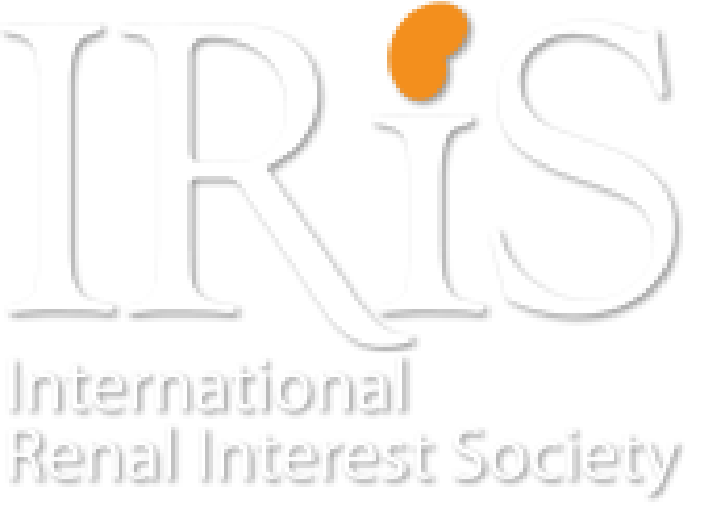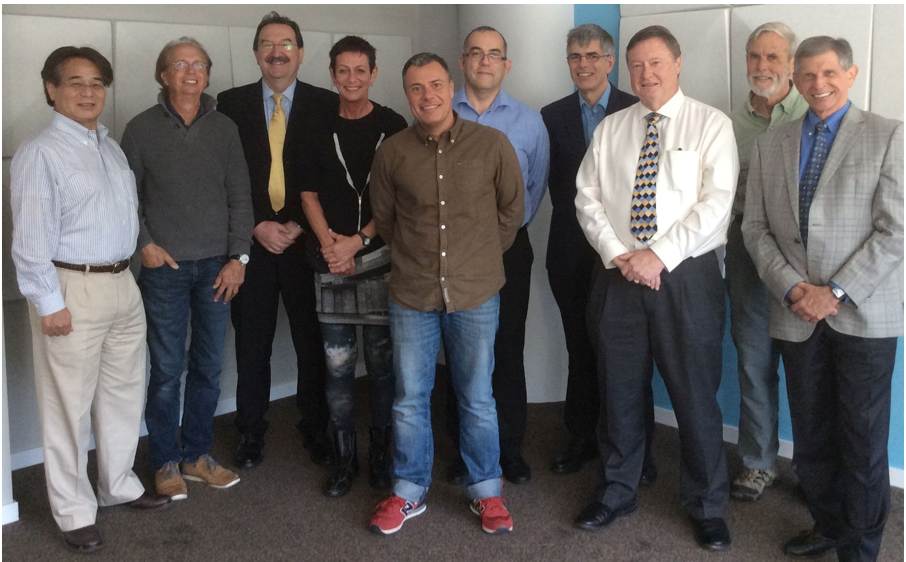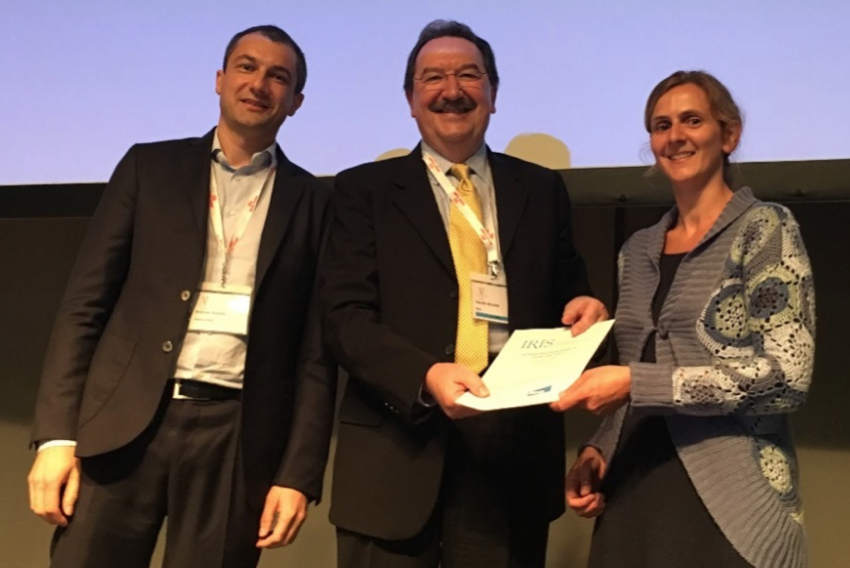
About IRIS
The IRIS Board made three significant changes to CKD Guidelines during 2014 and 2015. A summary of these new recommendations is presented here. The full version of 2015 Guidelines will be uploaded during our website relaunch by the end of 2015.
Substaging by Arterial Blood Pressure
We recommend replacement of the existing abbreviations for blood pressure substages (AP0-AP1) with descriptive terms as follows:
| Systolic blood pressure (mm Hg) | Diastolic blood pressure (mm Hg) | Risk of future target organ damage | BP substage | |
|---|---|---|---|---|
| Original | New | |||
| <150 | <95 | Minimal | AP0 | Normotension |
| 150 - 159 | 95 - 99 | Mild | AP1 | Borderline hypertension |
| 160 - 179 | 100 - 119 | Moderate | AP2 | Hypertension |
| >180 | >120 | Severe | AP3 | Severe hypertension |
Treatment of Proteinuria
We recommend that IRIS CKD Stage 1 patients with persistent proteinuria (UPC ≥ 0.5 for dogs or 0.4 for cats) are not only monitored and thoroughly investigated but also receive standard treatment for proteinuria as currently recommended for IRIS CKD Stages 2 to 4. This parallels the IRIS consensus statement on standard treatment for glomerulonephritis (J Vet Intern Med 2013;27:S27–S43).
Interpreting Blood Concentrations of Symmetric Dimethylarginine (SDMA) in CKD
SDMA concentrations in blood (plasma or serum) may be a more sensitive biomarker of renal function than blood creatinine concentrations. A persistent increase in SDMA above 14 µg/dl suggests reduced renal function and may be a reason to consider a dog or cat with creatinine values <1.4 or <1.6 mg/dl, respectively, as IRIS CKD Stage 1.
In IRIS CKD Stage 2 patients with low body condition scores, SDMA ≥25 µg/dl may indicate the degree of renal dysfunction has been underestimated. Consider treatment recommendations listed under IRIS CKD Stage 3 for this patient.
In IRIS CKD Stage 3 patients with low body condition scores, SDMA ≥45 µg/dl may indicate the degree of renal dysfunction has been underestimated. Consider treatment recommendations listed under IRIS CKD Stage 4 for this patient.
These comments are preliminary and based on early data from the use of SDMA in veterinary patients. We expect them to be updated as the veterinary profession gains further experience using SDMA alongside creatinine, the long-established marker in diagnosis and monitoring of canine and feline CKD.
IRIS Newsletter 2016
IRIS annual Board Meeting 2016
Twelve members of the International Renal Interest Society met on September 5th and 6th for the 2016 IRIS Board meeting in Göteborg, Sweden (photo).

Attendees at the 2016 IRIS Board meeting (from left to right): Toshifumi Watanabe, Alexander Hüttig, Claudio Brovida, Reidun Heiene, Xavi Roura, Hervé Lefebvre, Jonathan Elliott, David Polzin, David Watson and Larry Cowgill; Greg Grauer was absent from the photo. Board members unable to attend the meeting were Astrid van Dongen and Scott Brown.
The annual meeting provided the opportunity for members to discuss and update existing Guidelines for staging and treatment of CKD and for grading AKI. In addition, elections were held for changes to the IRIS Board and membership of its various committees, and the change in our new legal status to become "IRIS Ltd" was explained. Decisions were made regarding revision of existing IRIS website articles, and some new contributions were planned. These and other changes are detailed in the following sections.
Changes to the IRIS Board and Committees
This year two members of the Board resigned and two new members were elected. Jean-Louis Pouchelon, Professor from the Ecole Nationale Vétérinaire d'Alfort, retired from professional activities, and Josefa Fernández del Palacio, head of the Cardio-Respiratory Service of the Veterinary Teaching Hospital, University of Murcia, decided to cease her activities in nephrology and to focus full-time on cardiology. IRIS is very grateful to these members who participated actively in the organization and supported IRIS from its beginning in 1998. We thank you both, Jean-Louis and Josefa, for your help in the past years and we will miss you.
The Board decided on an electoral process to identify two nephrologists to replace the retiring members. An invitation for individuals to apply for IRIS Board membership was sent to the ASVNU, ESVNU, ACVIM and ECVIM. Applicants were asked to send their curriculum vitae and a letter outlining their expertise and ideas that could contribute to the objectives of IRIS. We received applications from 19 well-qualified nephrologists from around the world. The selection process was challenging, considering the quality of the applicants, and their geographical spread, the two departing members being from France and Spain.
After two rounds of voting we had a very positive result. The newly elected IRIS Board members are Harriet Syme and Gilad Segev. Harriet is Professor of Small Animal Internal Medicine and Senior Clinical Tutor at the Royal Veterinary College, the University of London. Gilad is Head of the Department of Small Animal Internal Medicine, Veterinary Teaching Hospital of the Koret School of Veterinary Medicine, Robert H. Smith Faculty of Agriculture, Food and Environment in Israel. Both have focused their activities in the area of nephrology and are recognized internationally.
This year was also saw a change in the position of Chair of IRIS, as the President Elect, Claudio Brovida, assumed the presidency, and Greg Grauer was elected unanimously as the new President Elect.
At the same time, membership of the three committees that are the real driving force of our Society was overhauled. For the next two years the organization is as follows:
Award Committee: Greg Grauer (chair), Claudio Brovida, Harriet Syme, Reidun Heiene, Toshifumi Watanabe
Project Committee: David Polzin (chair), Astrid van Dongen, Alexander Huettig, Larry Cowgill, Xavi Roura
Website Committee: Scott Brown (chair), Jonathan Elliott, Hervé Lefebvre, Gilad Segev, David Watson
The 2016 IRIS Guidelines
All guidelines have been updated, and the current versions are now found at www.iris-kidney.com. Various textual changes have been made to improve accuracy and readability, but some clarifying discussion also took place about the following points:
Use of creatinine and SDMA in CKD diagnosis and treatment
Reports suggest that some practitioners are confused about the role of these two analytes in IRIS CKD staging and treatment guidelines. But here is a summary:
IRIS CKD staging is based on fasting blood creatinine concentrations and is valid only for dogs and cats with stable CKD; it is not applicable when blood creatinine concentrations are changing substantially over a short period of time.
Blood SDMA concentrations do not replace blood creatinine for IRIS CKD staging, but may provide additional useful information in two specific situations:
1. In staging: a persistent increase in SDMA above 14 µg/dl suggests reduced renal function and may be one reason to consider a dog or cat with creatinine values <1.4 or <1.6 mg/dl (that is <125 or <140 µmol/l), respectively, as having IRIS CKD Stage 1. Other reasons for diagnosing CKD with these laboratory results would be evidence of persistent proteinuria of renal origin, structural changes in the kidney revealed by imaging or persistent polyuria / polydipsia with no non-renal cause identified. Having more than one of these findings increases the certainty of the diagnosis of CKD at Stage 1.
2. For treatment: in IRIS CKD Stage 2 or Stage 3 patients with low body condition scores, SDMA values ≤25 or ≤45 µg/dl, respectively, may indicate the degree of renal dysfunction has been underestimated; in these patients, treatment recommendations listed for Stage 3 or Stage 4, respectively, should be considered. These preliminary suggestions are based on reported values for SDMA obtained using Idexx Laboratory's methodology. For further information on SDMA, see the Emerging Themes article on SDMA by Scott Brown at www.iris-kidney.com.
Treatment of vomiting, inappetence and nausea in CKD
These signs are common in later stages of CKD and negatively impact quality of life in affected cats and dogs. There is a need for more information to allow definitive treatment recommendations to be made, but short-term studies (2 to 3 weeks) have provided good evidence of safety and efficacy in managing vomiting (using maropitant or mirtazapine) and inappetence (mirtazapine only) in cats.
Recent data also cast doubt on the importance of hyperacidity and uraemic gastritis, previously used as a rationale for use of H2-receptor blocking drugs in cats with CKD. Nausea, like pain, is difficult to assess in veterinary practice, so identification of biomarkers for nausea would be very useful in helping show which cats with CKD might benefit from anti-nausea treatment.
More details about these treatment options can be found in the 2016 updated version of IRIS CKD treatment guidelines, and in a new Educational Topic article by Jonathan Elliott at www.iris-kidney.com.
Educational Topics and Emerging Themes
For 2016, five of the current Educational Topics have been reviewed and updated by their original authors ("The IRIS staging system", "Urine collection", "Proteinuria", "Hypertension", and "Preventing aminoglycoside-induced AKI"). In addition, Xavi Roura has revised the article on "Risk factors for CKD" and Harriet Syme has taken on the subject on "Early diagnosis of CKD". Three new Educational Topics added are on "Treatment of vomiting, nausea and inappetence in cats with CKD" by Jonathan Elliott, "Diets for cats with CKD" by David Polzin and "Reassessment of 'normal values' in dogs and cats with CKD" by Greg Grauer. In addition, Scott Brown has updated his Emerging Theme article entitled "Symmetric dimethylarginine (SDMA): a new biomarker of renal function in cats and dogs" and contributed a new one on "Renal fibrosis in cats".IRIS becomes "IRIS Ltd"
To continue its current activities, IRIS had to become formally established as a legal entity, and we are now registered as a company limited by guarantee through UK Companies House. Practically speaking, this does not change the activities of IRIS; we remain a not-for-profit organisation with the mission of promoting the discipline of comparative nephrology and improving the understanding, diagnosis and treatment of kidney disease.The 2015 IRIS Award
A request for nominations and applications for the IRIS Award was circulated during 2015 (see boxed text).
Call for Nominations/Applications:
2015 IRIS Award in Veterinary Nephrology
The International Renal Interest Society (IRIS)* is pleased to invite nominations or applications for the 2015 IRIS Award. IRIS is an international organization supported by Elanco (continuing Novartis Animal Health previous role) whose objectives are to advance veterinary nephrology and to help veterinary practitioners better diagnose, understand and treat kidney disease in cats and dogs. The IRIS Award (Value EURO 10 000) is granted to a promising individual for outstanding contributions to the field of veterinary nephrology. This award is made to a trainee or individual early in his/her research career for outstanding fundamental or clinical research performed in veterinary nephrology.
Qualifications:
Candidates for the IRIS Award must:
- be a veterinarian
- be in an early stage of career development and actively engaged in the field of veterinary nephrology for less than 7 years (i.e., no publication in nephrology before 2008)
- have conducted a single or series of research projects that have contributed significantly to the understanding, diagnosis, and/or treatment of kidney disease in dogs and/or cats.
- have research contributions published or accepted for publication in peer-reviewed journals within the last 5 years (earliest publication date for consideration is 2010).
Four applications or nominations were received by the IRIS President. Each IRIS Board member independently evaluated the documents submitted and, after these were tallied, the winner chosen was Dr Dominique Paepe DVM, Dipl ECVIM-CA, PhD, from Belgium.
 Dominique Paepe has conducted research within nephrology and related areas and has published over 20 articles relevant to veterinary nephrology during the last 5 years. Her focus has been broad, with a major interest in screening for early feline chronic kidney disease, which was also the title of her PhD thesis in 2015.
Dominique Paepe has conducted research within nephrology and related areas and has published over 20 articles relevant to veterinary nephrology during the last 5 years. Her focus has been broad, with a major interest in screening for early feline chronic kidney disease, which was also the title of her PhD thesis in 2015. Her research includes investigations of novel techniques of potential value for research and clinics, as well ways to optimize traditional clinical tools. Of particular interest has been assessment of kidney function in endocrine disease. Most of the research was conducted in the Department of Medicine and Clinical Biology of Small Animals at the Faculty of Veterinary Medicine of Ghent University, where she is currently professor in internal medicine.
The award was presented during the European College of Veterinary Internal Medicine (ECVIM) Congress in Göteborg, Sweden on September 8th, 2016.

Presentation of the 2015 IRIS Award, showing, left to right: Mathieu Peyrou, representing Elanco, Claudio Brovida, President of IRIS, and Dominique Paepe, the 2015 IRIS Awardee.

In March of 2016, IRIS launched another milestone agenda, the 2016 IRIS Renal Week. With the impending discontinuation of the Advanced Renal Therapies Symposium, a highly regarded nephrology-orientated educational symposium convened biannually for over a decade at the Animal Medical Center in New York, the IRIS Board agreed to assume leadership for the future continuation of this meeting under the name, IRIS Renal Week. In addition to its new sponsorship, IRIS Renal Week assumed a new location on the UC Davis campus which afforded an improved and more capable venue for delivery of the state-of-the-art presentations and diverse laboratories. Located in the heart of northern California, UC Davis facilitated the camaraderie among fellow nephrologist and break away opportunities for the California Wine Country, San Francisco, Lake Tahoe, Yosemite, and the north coast of California.
The 3 1/2 day program was crafted by three members of the IRIS Board (Larry Cowgill David Polzin and Jonathan Elliott) and Drs. Cathy Langston (founder of the Advanced Renal Therapies Symposium at the AMC), and JD Foster. The agenda for the meeting featured an international array of veterinary and human nephrologists and state-of-the-art topics including: mineral and bone metabolism in CKD, novel kidney biomarkers in acute and chronic kidney disease, cardiorenal syndromes, new directions for the understanding of early acute and progressive chronic kidney disease, updates on the 2015 IRIS Napa Meeting, and advances in veterinary extracorporeal therapies. The program included, in addition, 10 laboratory sessions providing hands-on opportunities for intermittent and continuous hemodialysis, therapeutic apheresis, and renal pathology; poster sessions and free communications on current research in veterinary nephrology; and a robust social experience for attendees and corporate sponsors.
The formal IRIS Renal Week meeting was preceded by a 2-day boot camp on extracorporeal therapies for the beginner and post scripted by a wet lab on interventional nephrology/urology. The nearly 150 international attendees were highly enthusiastic about the new venue, the quality and content of the program, and the overall educational experience. The conference was made accessible internationally through ability to view real-time webcasts of the lectures and laboratories. Some of the speakers delivered their lectures to the conference from a distance which did not detract from the educational experience, such was the quality of the platform over which they were delivered.
We gratefully acknowledge the generous sponsorship of Boehringer Ingelheim, Idexx Laboratories Ltd., Vetoquinol Ltd., Royal Canin Ltd, Hills Pet Nutrition, B. Braun, CEVA, Aventix, and MILA International which made it possible to hold this meeting and offer reduced rates, particularly for trainees.
The next IRIS Renal Week is scheduled for 19-24 March, 2018 - the program committee is already discussing the emerging issues in comparative nephrology that should be featured. Plan to attend!
Introducing the IRIS Board President for 2016 - 2018
 Claudio Brovida graduated from the Veterinary School of Turin in Italy and later received a PhD from the Veterinary School of Padua. He subsequently developed his career in small animal practice, with particular interest in internal medicine, and especially nephrology and urology. He founded, and is presently the Director of, the ANUBI® Ospedale per Animali da Compagnia in Moncalieri, near Turin, that includes an Hemodialysis and Blood purification Unit which has been active for more than 15 years. He has been a previous President of the World Small Animal Veterinary Association.
Claudio Brovida graduated from the Veterinary School of Turin in Italy and later received a PhD from the Veterinary School of Padua. He subsequently developed his career in small animal practice, with particular interest in internal medicine, and especially nephrology and urology. He founded, and is presently the Director of, the ANUBI® Ospedale per Animali da Compagnia in Moncalieri, near Turin, that includes an Hemodialysis and Blood purification Unit which has been active for more than 15 years. He has been a previous President of the World Small Animal Veterinary Association.